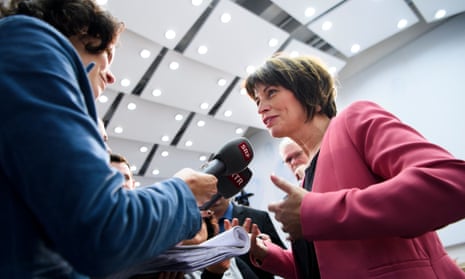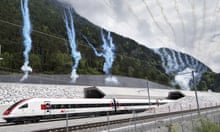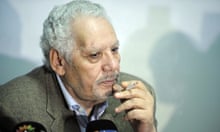Swiss voters have rejected a proposal to cut taxpayer funding to public broadcasters, after a campaign that stirred debate about the media’s role in fostering national unity.
The “No Billag” initiative – a reference to the Billag firm that collects the media licensing fee – divided Switzerland along political and generational lines.
But 71% voted “no” to the proposals on Sunday, according to official results published by the Swiss news agency ATS.
Rejection of the initiative was “a strong sign for the public service and for private regional radio and television”, said Gilles Marchand, director of the Swiss Broadcasting Corporation (SSR).
He said he had noted criticism of SSR and announced an efficiency drive and 100m Swiss franc (£77m) investment from next year.
No Billag’s backers, led by the youth wing of the libertarian Free Democratic party (PLR), sought to portray the SSR as an unfairly dominant and outdated relic. Switzerland’s largest party, the nationalist and anti-migrant Swiss Peoples party (UDC), had also thrown its support behind the initiative.
SSR, which received about 1.2bn Swiss francs from the licence fee last year – or three-quarters of its budget – delivers news in the country’s four official languages: German, French, Italian and Romansch. Many credit it for guaranteeing that all Swiss residents receive information of crucial public interest, along with a range of opinion and analysis.
But No Billag’s proponents argued that freeing taxpayers of the 451-Swiss franc annual fee would unlock new economic potential, create a more competitive media sector and ultimately foster more choice. The cost is due to drop to 365 Swiss francs next year, but everyone will have to pay, even if they do not own a television or radio, after the government decided both platforms were watched and listened to via the internet.
Sunday’s poll was part of Switzerland’s direct democracy system, where proposed initiatives face a national vote four times a year. Turnout reached 54%, nearly 10% above the recent average.
A broad political coalition along with prominent athletes, filmmakers and even the chief executive of top Swiss bank UBS, Sergio Ermotti, came out in defence of public media. The committee formed to fight No Billag warned that with a substantial majority of the country’s wealth concentrated in German-speaking areas, programming would increasingly skew to that audience.











Comments (…)
Sign in or create your Guardian account to join the discussion